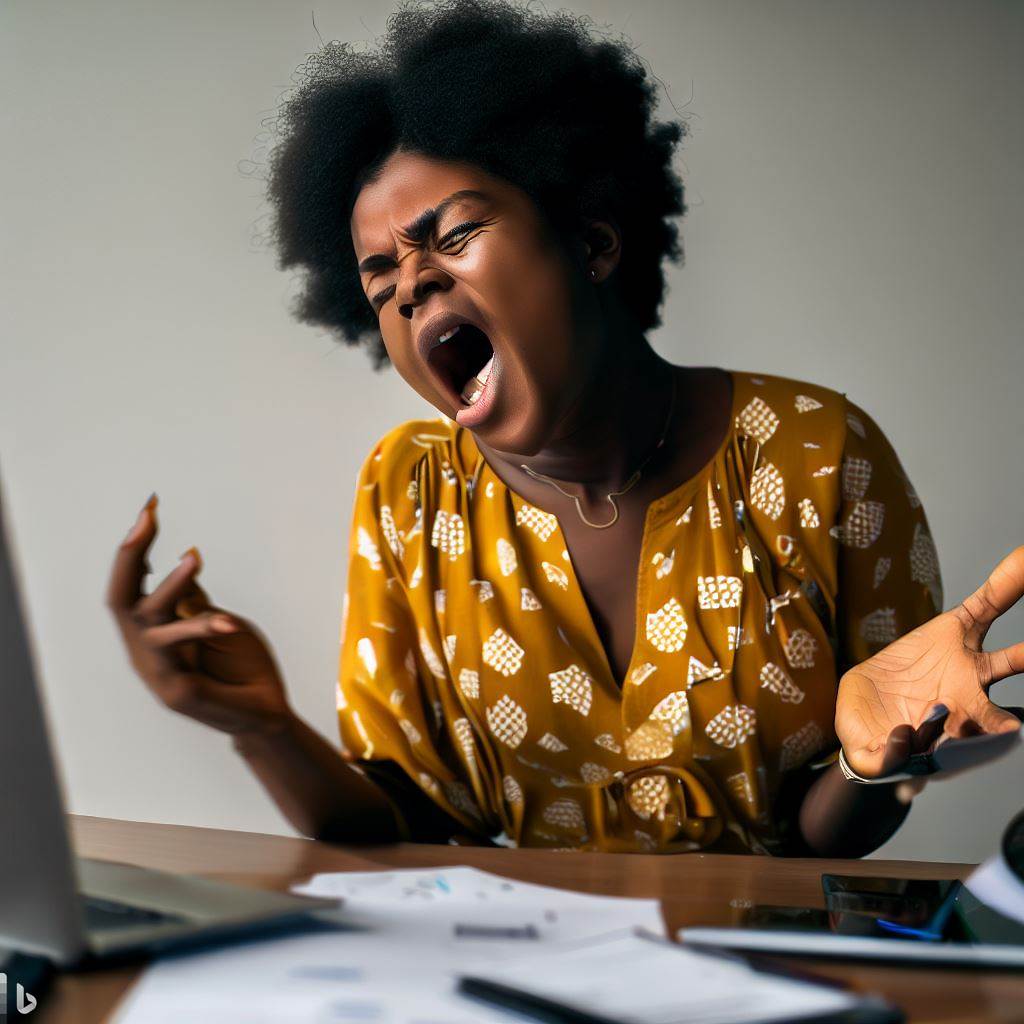Intellectual Property Laws for Freelancers in Nigeria
Last Updated on January 27, 2024
Introduction
Explanation of What Intellectual Property Laws Are
Intellectual property laws are a set of legal frameworks that protect the creations of the mind from unauthorized use by others.
These laws are essential for freelancers in Nigeria who generate novel ideas and works, bringing value to the economy and to society in general.
Importance of Intellectual Property Laws for Freelancers in Nigeria
Here are a few reasons why intellectual property laws are crucial for freelancers in Nigeria:
- Protection of one’s work: Freelancers spend time, resources, and effort to create original works. Intellectual property laws protect these creations and give freelancers the right to control the use of their work.
- Financial benefits: Intellectual property laws enable freelancers to monetize their work, obtain recognition, and generate revenue. Without these laws, others could profit from their work without permission or compensation.
- Encouragement of innovation: When freelancers know that their works are protected, it encourages them to continue developing new ideas and concepts, serving as a catalyst for innovation in Nigeria.
- Legal remedies: Intellectual property laws provide legal remedies for freelancers in case of infringement. They can sue for monetary damages, injunctions, and other relief.
- International recognition: Intellectual property laws are recognized worldwide, providing a global protection framework. This enables Nigerian freelancers to access international markets and expand their reach.
Without intellectual property laws, freelancers in Nigeria would be vulnerable to piracy, counterfeiting, and infringement of their works.
These laws create a fair playing field, protecting the creators of original works and enabling them to benefit from their creations.
It is, therefore, important for freelancers in Nigeria to understand and abide by these laws.
Read: Legal Implications of Freelancing in Nigeria: A Brief
Types of Intellectual Property Laws for Freelancers in Nigeria
Copyright Law
Copyright law is a type of intellectual property law that protects the creators of original work from unauthorized copying, distribution, or reproduction.
For freelancers, this covers written works, music, films, photographs, and other similar creations.
The importance of copyrights for freelancers cannot be overemphasized. It helps to protect their original work from being misused by other individuals or organizations, thereby preserving the value of their work and maintaining their income source.
Trademark Law
Trademark law is another type of intellectual property law that protects words, symbols, phrases, or designs that identify and distinguish a product or service from others in the market.
For freelancers, this may include their logo, business name, or any other identifying factor.
The importance of trademarks for freelancers lies in the fact that it helps to establish their brand identity, which is crucial in modern business.
It also helps to prevent any unauthorized use of their brand name or logo, which could lead to a loss of customers and revenue.
Patent Law
Patent law is a type of intellectual property law that protects inventions and discoveries from being used, made, or sold by others without proper authorization.
For freelancers, this may include software applications, inventions, or innovative products.
The importance of patents for freelancers is that it provides legal protection for their inventions, which can be a major source of income.
It also helps to prevent any unauthorized use or duplication of their idea, which could result in a loss of potential revenue and legal complications.
Industrial Design Law
Industrial design law is a type of intellectual property law that protects the visual appearance of a product.
This includes the shape, texture, and color of the product. For freelancers, this may include fashion designs, graphics, or other visual elements.
The importance of industrial design for freelancers is that it helps to protect their creative output, which is often the unique selling point of their products or services.
It also helps to prevent any unauthorized use or copying of their design, which could lead to a loss of revenue and reputation.
In essence, it is important for freelancers to be aware of the various types of intellectual property laws and how it applies to their work.
As the saying goes, “an ounce of prevention is worth a pound of cure”. By taking the necessary steps to protect their work, freelancers can avoid legal complications and safeguard their income source.
Read: Tax Compliance in Nigeria: A Freelancer’s Guide
How to Protect Your Intellectual Property
Registering Your Intellectual Property
Registering your intellectual property is an essential step in protecting your rights as a freelancer in Nigeria.
By registering your work, you gain legal ownership and are entitled to exclusive use and distribution of the work.
Furthermore, registration enables you to prevent others from using your work without your permission and provides you with the right to sue those who infringe on your intellectual property rights.
Steps on how to register your intellectual property in Nigeria
- Obtain the necessary application forms.
- Submit the completed application forms to the Nigerian Copyright Commission, Nigerian Trademark, Patent, and Designs Registry, or the National Office for Technology Acquisition and Promotion depending on the type of intellectual property.
- Pay the required application fees and await approval from the relevant authority.
Importance of registering your intellectual property
- Provides legal ownership of the work.
- Ensures exclusive use and distribution of the work.
- Prevents unauthorized use of the work.
- Enables legal action against infringers.
Copyrighting Your Work
Copyrighting your work is a straightforward and cost-effective way of protecting your intellectual property.
It provides you with legal ownership of the work and grants you exclusive rights to use and distribute the work.
Why you should copyright your work
- Provides legal protection against infringement.
- Enables you to take legal action against infringers.
- Ensures payment for use or reproduction of your work.
Steps on how to copyright your work
- Create your work.
- Include a copyright notice on your work (© [Year of Creation] [Your Name]).
- Deposit a copy of your work with the Nigerian Copyright Commission.
- Pay the specified registration fee.
Trademarking Your Brand
Trademarking your brand is a crucial step in branding your business and standing out in the marketplace.
It provides you with the legal right to use the brand and prevents others from using it without your permission.
Why you should trademark your brand
- Provides legal recognition of ownership of the brand.
- Ensures the exclusivity of the use of the brand.
- Protects the brand from infringement.
Steps on how to trademark your brand
- Identify and search the Nigerian Trademarks, Patents, and Designs Registry database for existing trademarks.
- Submit an application to register your trademark, including a detailed description of your brand and the goods or services it represents.
- Pay the specified registration fee.
- Await approval from the Nigerian Trademarks, Patents, and Designs Registry.
Protecting Your Intellectual Property Online
Protecting your intellectual property online is crucial in today’s digital age.
As a freelancer in Nigeria, you need to take measures to protect your work from unauthorized use and ensure your exclusive rights to use and distribute the work.
Steps on how to protect your intellectual property online
- Include a copyright notice on your online work.
- Use watermarks or digital signatures to indicate ownership of your work.
- Enable digital rights management (DRM) on your work to control access and prevent unauthorized distribution and use.
- Monitor online use of your work using online tracking tools and take legal action against infringers.
Importance of protecting your intellectual property online
- Prevents unauthorized use of your work.
- Ensures payment for use or reproduction of your work.
- Protects against piracy and infringement.
Therefore, protecting your intellectual property is critical for freelancers in Nigeria.
Registering your work, copyrighting your work, trademarking your brand and protecting your intellectual property online are measures that will protect your work and ensure your exclusive rights to use and distribute the work.
Failure to take these measures may result in lost income and damage to your reputation as a creative.
Read: How to Register for Taxes as a Freelancer in Nigeria

Consequences of Intellectual Property Infringement
Theft of intellectual property is a serious offense in Nigeria, and infringing on the rights of another person or company can lead to legal consequences, both civil and criminal in nature.
It is essential for freelancers in Nigeria to understand the consequences of intellectual property infringement and take necessary steps to avoid it.
Legal Consequences of Intellectual Property Infringement
Violations of intellectual property laws in Nigeria can result in serious legal consequences.
According to the Nigerian Copyright Commission (NCC), intellectual property rights (IPR) infringement is punishable by both civil and criminal laws.
The legality of each case depends on the severity of the violation, and the plaintiff’s country of origin.
- Violation of intellectual property rights can lead to a lawsuit filed by the rightful owner of the intellectual property.
- The infringer might be required to pay damages, which could be financially crippling.
- It can also result in the seizure of the infringing work, any profits made from it, or even imprisonment and fines.
Explanation of Civil and Criminal Penalties for Infringement
The consequences of infringing on intellectual property rights can result in either criminal or civil penalties.
- Civil Penalties: Civil penalties are the most common form of legal action taken against IPR infringers. Civil penalties usually involve the payment of damages to the rightful owner of the intellectual property as compensation for the losses they incurred.
In civil cases in Nigeria, the awarded compensation greatly depends on the extent of damages and the seriousness of the infringement. - Criminal Penalties: Criminal penalties are generally harsher than civil penalties and involve trials and charges for illegal activities.
Criminal penalties for infringing on intellectual property rights in Nigeria include fines and/or imprisonment depending on the severity of the crime.
Importance of Understanding the Consequences of Intellectual Property Infringement
As a freelancer, understanding the consequences of intellectual property infringement is integral to the continuity of your business.
Here are reasons why:
- Reputation Damage: Infringement of intellectual property rights can damage your professional reputation and can lead to losing clients and repeat business.
Even worse, the negative effect of the damaged reputation can spread in your industry, which may lead to future difficulties in securing new clients. - Financial Loss: As a freelancer, infringement on intellectual property rights can result in significant legal fees to pay damages and fines.
The financial loss that can result from a lawsuit can be catastrophic for your business if you don’t have the means to cover it. - Lack of Trust: Once you infringe on the intellectual property rights of another entity, the trust people have in you gets significantly broken. This lack of trust can lead to loss of business and credibility as a freelancer.
In a nutshell, violating intellectual property laws can have severe consequences that can negatively affect freelancers’ careers in Nigeria.
Learning about and understanding these consequences is essential for freelancers to ensure that they avoid infringing on the intellectual property rights of others and maintain their professional reputation.
Read: Freelancing in Nigeria: Top Tax Mistakes to Avoid
You Might Also Like: How to File Annual Tax Returns in Nigeria as a Freelancer
Conclusion
As a freelancer in Nigeria, it is crucial to understand the importance of Intellectual Property Laws.
Protecting your intellectual property is not an option; it is a necessity.
Ensure that your work is original and that you have filed for a trademark or patent if necessary.
Do your due diligence before accepting a job or signing a contract, and make sure you understand the terms and conditions.
If you find your work has been plagiarized, seek legal action immediately.
Remember that prevention is always better than cure. Protect yourself before it’s too late.
Finally, it is crucial to note that intellectual property laws are continuously evolving in Nigeria.
Stay updated with changes in the law and seek legal advice when necessary.
As a freelancer, your intellectual property is your livelihood. Protect it. It is worth it.
Ensure that you are aware of your rights as a freelancer and protect them to the fullest extent of the law.


